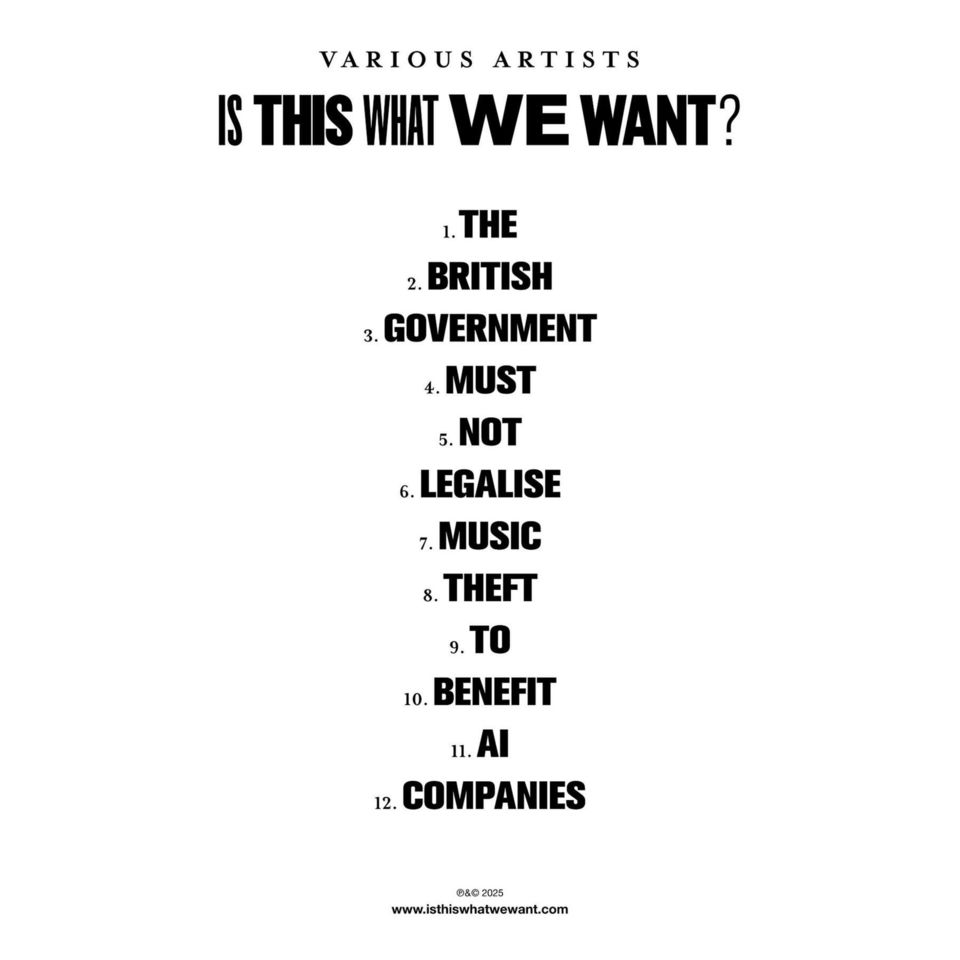
UK Government Faces Backlash from Artists Over AI and Copyright Proposals
Musicians and creative industry leaders express concerns as government reviews AI-related copyright changes.
On February 28, 2025, prominent figures in the UK music industry, including Sir Paul McCartney, Sir Elton John, and Kate Bush, voiced strong opposition to proposed changes in copyright law aimed at facilitating the training of artificial intelligence (AI) models using copyrighted material.
The proposals, which would create an exemption allowing tech firms to utilize copyrighted work without requiring a license, have sparked intense debate regarding their potential impact on the creative sector.
These changes would shift the burden of consent to creators, who would need to opt out to prevent their works from being used in AI training.
Musicians have expressed that such measures could significantly undermind their rights and threaten the future of their profession, fearing the possibility of being replaced by technology.
Sir Elton John characterized the UK’s creative sector as the 'envy of the world,' cautioning that the proposed changes could jeopardize this status.
Similarly, Sir Paul McCartney emphasized the risks posed by AI, suggesting that it could lead to the exploitation of artists and their work.
Additionally, over 1,000 musicians, including notable figures such as Annie Lennox and Damon Albarn, participated in a protest by recording a silent album, symbolically highlighting their discontent regarding the proposed legislative changes.
In response to the backlash, Prime Minister Sir Keir Starmer acknowledged the importance of the creative industry to the UK economy and the nation’s global standing.
He affirmed that the government is in the process of reviewing feedback from a public consultation on the issue.
Starmer articulated his commitment to ensuring that 'creatives thrive' and recognized their vital role not only in economic contributions but also in shaping the country’s cultural reputation.
The ongoing discourse around these proposals occurs in a broader context of increasing scrutiny over the use of AI technologies and their implications for various sectors, particularly those that rely heavily on intellectual property rights.
The proposals, which would create an exemption allowing tech firms to utilize copyrighted work without requiring a license, have sparked intense debate regarding their potential impact on the creative sector.
These changes would shift the burden of consent to creators, who would need to opt out to prevent their works from being used in AI training.
Musicians have expressed that such measures could significantly undermind their rights and threaten the future of their profession, fearing the possibility of being replaced by technology.
Sir Elton John characterized the UK’s creative sector as the 'envy of the world,' cautioning that the proposed changes could jeopardize this status.
Similarly, Sir Paul McCartney emphasized the risks posed by AI, suggesting that it could lead to the exploitation of artists and their work.
Additionally, over 1,000 musicians, including notable figures such as Annie Lennox and Damon Albarn, participated in a protest by recording a silent album, symbolically highlighting their discontent regarding the proposed legislative changes.
In response to the backlash, Prime Minister Sir Keir Starmer acknowledged the importance of the creative industry to the UK economy and the nation’s global standing.
He affirmed that the government is in the process of reviewing feedback from a public consultation on the issue.
Starmer articulated his commitment to ensuring that 'creatives thrive' and recognized their vital role not only in economic contributions but also in shaping the country’s cultural reputation.
The ongoing discourse around these proposals occurs in a broader context of increasing scrutiny over the use of AI technologies and their implications for various sectors, particularly those that rely heavily on intellectual property rights.











